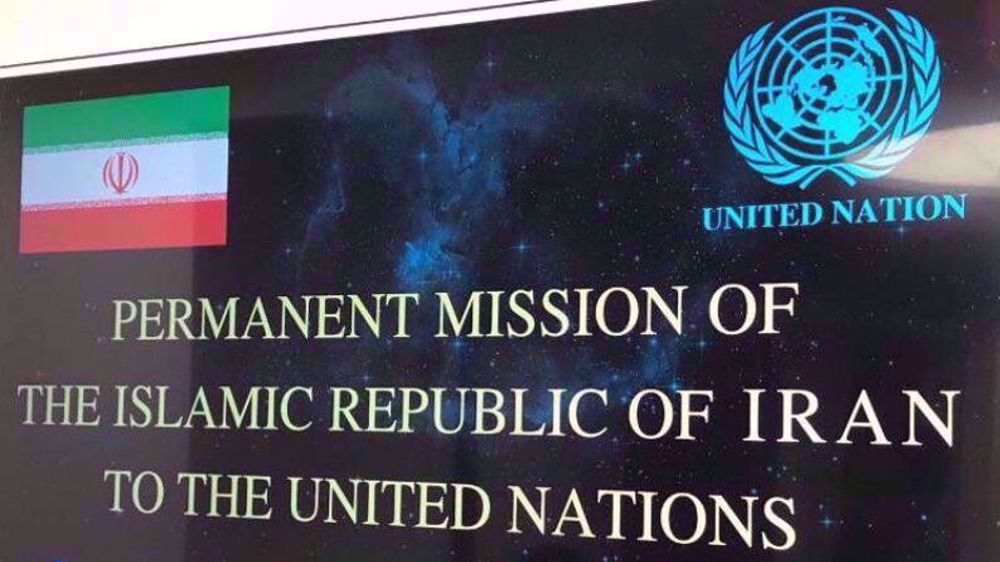
United Nations, August 11 (RHC)-- Iran’s Permanent Mission to the United Nations says that the Islamic Republic's right to retaliate against Israel’s terrorism inside Iran has nothing to do with the ongoing ceasefire talks in the Gaza Strip.
The mission on Friday was asked whether Iran will postpone the response to the Israeli regime until next week's talks regarding the ceasefire in Gaza, which has been under Israeli aggression since October last year. "Establishing a lasting ceasefire in Gaza is our priority. Any agreement that Hamas accepts will be accepted by us."
"Our national security and sovereignty have been violated during the recent terrorist act of the Israeli regime. We have the right to legitimate defense and this has nothing to do with the Gaza ceasefire," the mission said. “But we hope that our response will be completed on time and in a way that does not harm the possible ceasefire,” the mission added.
Iran’s Mission to the United Nations also talked about the existing channels of communication between Iran and the United States. "There have always been direct and intermediary official channels for the transmission of messages between Iran and the United States,” the mission said.
Ismail Haniyeh, the chief of Hamas political bureau, and one of his bodyguards were assassinated in the Iranian capital last week. Following the assassination, the Islamic Revolution Guards Corps (IRGC) stated that Haniyeh was martyred by a "short-range projectile" launched from outside his residence in Tehran.
Iranian political and military leadership, including the Leader of the Islamic Revolution Ayatollah Seyyed Ali Khamenei and President Masoud Pezeshkian, have vowed to avenge Haniyeh's blood.
Although the Israeli regime has not commented on the assassination, Iran has pledged retaliation.
In response to a question on Thursday about Washington's diplomatic efforts and how Iran responded to Israel's aggression and the assassination of Ismail Haniyeh in Tehran, U.S. State Department spokesman Matthew Miller said he cannot talk about “private diplomatic conversations” between the United States and Iran.
“And I’m certainly not going to speak to what Iran may or may not be planning other than to say, as we’ve said for several days now and it’s been the focus of our diplomatic engagements, is we continue to make clear to Iran that they should not escalate this conflict. They should not take any further escalatory steps. That those steps are not in their interests. They are not in the interests of the wider region, and that’s – that is a point we will continue to impress in all of our diplomatic engagements in the region,” he said.
Miller was asked whether a ceasefire deal would help in lowering tensions in the West Asia region, and about Iran’s possible retaliation against Israel. He said: “I will say that there are two sides of this coin. On one side of the coin, yes, we believe that a ceasefire would go a long way towards alleviating tensions in the region.”
“It would obviously have immediate benefits for the Palestinian people in Gaza; it would have immediate benefits for the hostages and their families. But we think it would allow us to make progress in the diplomatic endeavors we have been pursuing to bring calm along the Israel-Lebanon border, and it would allow us to ease broader regional tensions,” he added.
“On the other side of that coin, certainly any further escalation just makes all of the region’s problems more difficult. And one of the problems that we’re addressing is the conflict in Gaza and trying to reach a ceasefire,” he said.
The appointment of Yahya Sinwar as Hamas’s new political leader signifies that Palestinians remain committed to resisting the Israeli regime and liberating Al-Quds, says Ali Akbar Velayati, a senior advisor to Leader of the Islamic Revolution Ayatollah Seyyed Ali Khamenei.
Israel unleashed its brutal war on Gaza on October 7 after the Palestinian Hamas resistance group carried out a historic operation against the usurping entity in retaliation for its intensified atrocities against the Palestinian people.
The Tel Aviv regime has killed at least 39,699 Palestinians, mostly women and children, and injured 91,722 others.
Hamas said that it has accepted an Egyptian-Qatari proposal, which includes a ceasefire, a complete withdrawal of Israeli troops from Gaza, an exchange of prisoners, reconstruction of the territory, and the lifting of Israel’s blockade.
However, Israel rejected the ceasefire deal, with prime minister Benjamin Netanyahu saying a withdrawal of the occupation forces from the Gaza Strip would “leave Hamas intact.”

